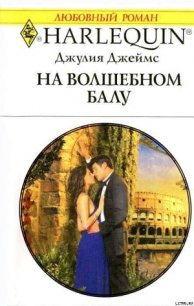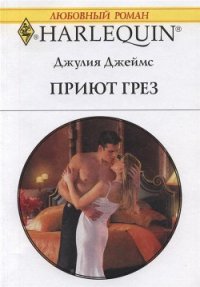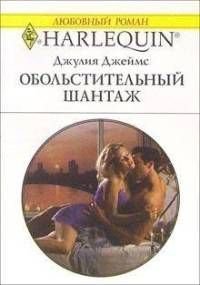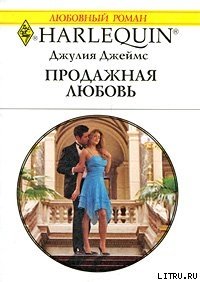Julia Ward Howe - Richards Laura E. (бесплатная регистрация книга TXT) 📗
In the autumn came a lecture tour, designed to recoup the heavy expenses of the Eastern trip. Never skilful in matters of money-making, this tour was undertaken with less preparation than the modern lecturer could well imagine. She corresponded with one and another Unitarian clergyman and arranged her lectures largely through them. Though she did not bring back so much money as many less popular speakers, she was, after all, her own mistress, and was not rushed through the country like a letter by ambitious managers.
The Journal gives some glimpses of this trip.
"Twenty minutes to dress, sup, and get to the hall. Swallowed a cup of tea and nibbled a biscuit as I dressed myself."
"Found the miserablest railroad hotel, where I waited all day for trunk, in distress!... Had to lecture without either dress or manuscript. Mrs. Blank hastily arrayed me in her black silk, and I had fortunately a few notes."
She never forgot this lesson, and in all the thirty-odd years of speaking and lecturing that remained, made it an invariable rule to travel with her lecture and her cap and laces in her handbag. As she grew older, the satchel grew lighter. She disliked all personal service, and always wanted to carry her hand-luggage herself. The light palm-leaf knapsack she brought from Santo Domingo was at the end replaced by a net, the lightest thing she could find.
The Unitarian Church in Newport was second in her heart only to the Church of the Disciples. The Reverend Charles T. Brooks, the pastor, was her dear friend. In the spring of 1880 a Channing memorial celebration was held in Newport, for which she wrote a poem. She sat on the platform near Mr. Emerson, heard Dr. Bellows's discourse on Channing, "which was exhaustive, and as it lasted two hours, exhausting." The exercises, W. H. Channing's eulogium, etc., etc., lasted through the day and evening, and in the intervals between addresses she was "still retouching" her poem, which came last of all. "A great day!" says the Journal.
"July 23. Very busy all day. Rainy weather. In the evening I had a mock meeting, with burlesque papers, etc. I lectured on Ism-Is-not-m, on Asm-spasm-plasm."
"July 24. Working hard, as usual. Marionettes at home in the evening. Laura had written the text. Maud was Julius C?sar; Flossy, Cassius; Daisy, Brutus."
"July 28. Read my lecture on 'Modern Society' in the Hillside Chapel at Concord.... The comments of Messrs. Alcott and W. H. Channing were quite enough to turn a sober head."
"To the poorhouse and to Jacob Chase's with Joseph Coggeshall. Old Elsteth, whom I remember these many years, died a few weeks ago. One of the pauper women who has been there a long time told me that Elsteth cried out that she was going to Heaven, and that she gave her, as a last gift, a red handkerchief. Mrs. Anna Brown, whom I saw last year, died recently. Her relatives are people in good position and ought to have provided for her in her declining years. They came, in force, to her funeral and had a very nice coffin for her. Took her body away for burial. Such meanness needs no comment.
"Jacob was glad to see me. Asked after Maud and doubted whether she was as handsome as I was when he first saw me (thirty or more years ago). His wife said to me in those days: 'Jacob thinks thee's the only good-looking woman in these parts.' She was herself a handsome woman and a very sweet one. I wish I had known I was so good-looking."
Of the writing of letters there was no end. Correspondence was rather a burden than a delight to her; yet, when all the "duty letters" were written, she loved to take a fresh sheet and frolic with some one of her absent children. Laura, being the furthest removed, received perhaps more than her share of these letters; yet, as will appear from them, she never had enough.
To Laura
Oak Glen, October 10, 1880.
Dearest, Dearest L. E. R.,—
How I wonder how you R! Cause of silence not hardness of heart, but the given necessity of scribbling for dear life, to finish a promised paper for the Woman's Congress, sedebit next week. I in Boston Wed., Thurs., and Fri.—day being understood. Mowski [Adamowski] left us yesterday morning.... We had him here a fortnight, and enjoyed his visit extremely. At table, between the courses, he played on every instrument of the orchestra. I asked once for the bass drum, which he imitated, adding thereunto the cymbals. We had a lunch party last week, for the bride, Maud Appleton, and "invited quite fashionable," and after all she didn't come. "Sick in bed with diphtheria." May by some be considered an excuse, but then, it's very rude to be sick, and it's very troublesome to other people. (This to make you feel badly about your own shortcomings.) We had a little dance, too, on Friday evening. An omnibus party came out and a few others. I pounded the Lancers and some ancient waltzes and polkas, ending with the Virginia reel, in which last I thought my floor would give way, the young men stamped so. I have no paper left except some newspaper wrappers, so can't write any more. Got up and found this scrap, then hunted for my pen, which, after some search, I found in my mouth. This is what it is to be lit'ry. Oh, my! I sometimes wish I wasn't!...
In October, while visiting Julia at the Institution, she missed her footing and fell down the two steps leading to the dining-room, breaking the ligaments of her knee. A letter to Laura makes the first mention of this serious accident, whose effects she felt all her life.
Oak Glen, November 9, 1880.
Dearest Laura Child,—
Behold the mum-jacket, sitting clothed and in her chair, confronting you after long silence, with comforting words of recovery. I am now in the fourth week of my infirmity, and I really think that the offending, or rather offended, muscles have almost recovered their natural power of contraction. My exercise is still restricted to a daily walk from my bed in the small parlor to my chair in the large parlor, and back again. But this walk, which at first was an impotent limp, with bones clicking loosely, is now a very respectable performance, not on the tight rope, indeed, but, let us say, on the tight garter.... The only break in the general uniformity of my life was dear Uncle Sam's arrival on Sunday last. He remained with us a couple of hours, and was as delightful as ever. Oh! more news. With his kind help, I have taken Mrs. Lodge's small house for the winter and this opens to me a comfortable prospect, though, even with his help, the two ends will have to be pulled a little in order to meet....
The furnished house in lower Mount Vernon Street proved a pleasant habitat. It was nine years since she had had a house in Boston; in spite of her lameness, perhaps partly because of it, she enjoyed entertaining her family and friends. Mrs. Terry and her daughter spent part of the winter with them.
The year 1880 was marked by the publication of her first book since "Later Lyrics": a tiny volume entitled "Modern Society," containing, beside the title essay, a kindred one on "Changes in American Society." The Journal makes little or no mention of this booklet, but Thomas Wentworth Higginson says of it: "It would be hard to find a book in American literature better worth reprinting and distributing.... In wit, in wisdom, in anecdote, I know few books so racy."
"January 1, 1881. I have now been lame for twelve weeks, in consequence of a bad fall which I had on October 17. I am still on crutches with my left knee in a splint. Have had much valuable leisure in consequence of this, but have suffered much inconvenience and privation of preaching, social intercourse, etc. Very little pain since the first ten days. Farewell, Old Year! Thank the Heavenly Father for many joys, comforts and opportunities."




